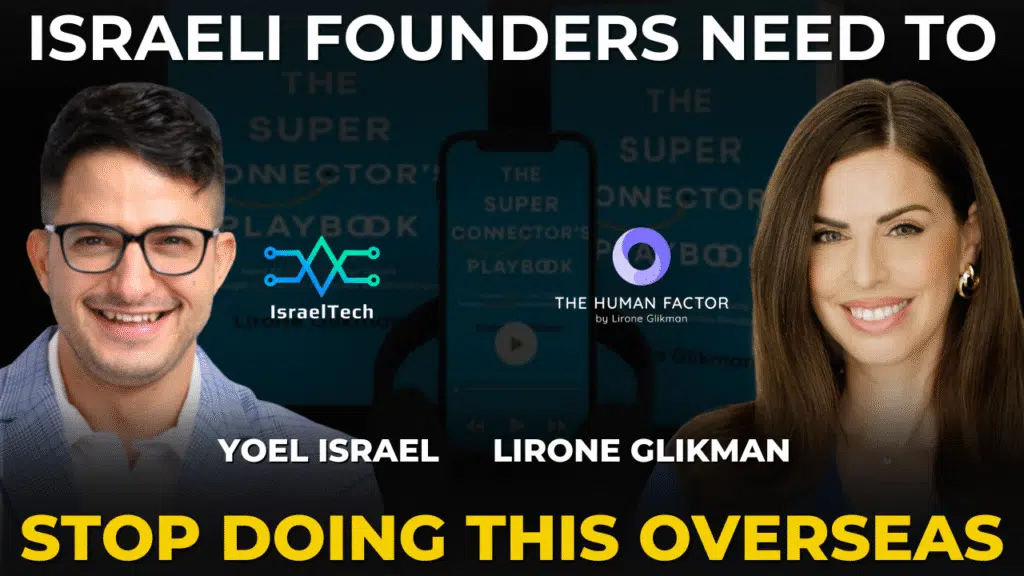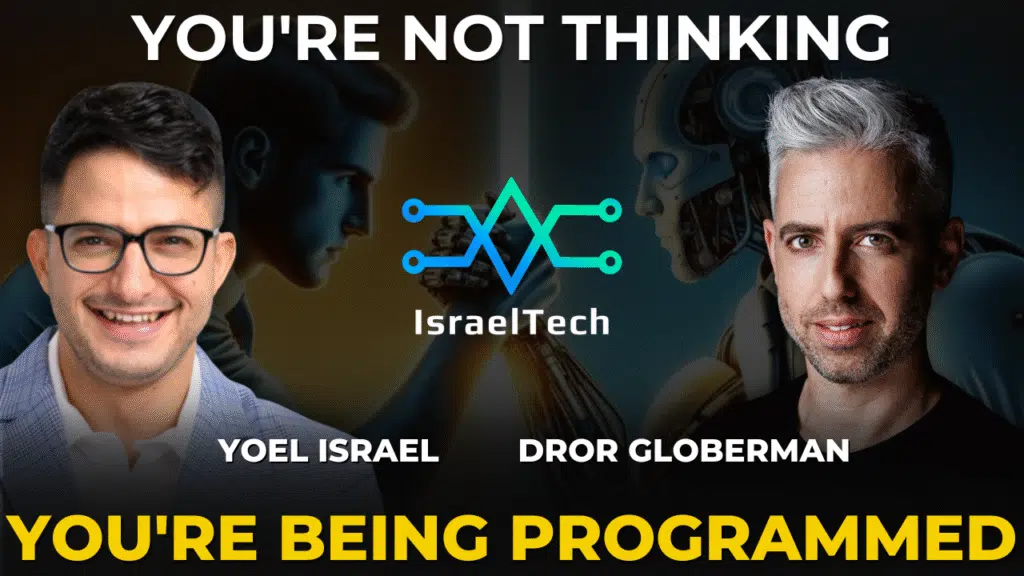There are few voices in Israel’s tech ecosystem as outspoken, insightful, and consistently energetic as Hillel Fuld. Known for bridging the worlds of Israeli innovation and global tech trends, Hillel recently sat down again with IsraelTech’s Yoel Israel at Google for Startups in Tel Aviv – marking his return as our first-ever repeat guest.
And as usual, he didn’t hold back.
From autonomous vehicles and generative AI to drones, ethics, and geopolitics, this conversation cut deep into the big questions shaping both Israeli tech and the global innovation landscape. Here’s what we learned.
“AI Won’t Replace Humans – Humans Using AI Will Replace Those Who Don’t.”
In classic Hillel fashion, the conversation kicked off with a mic-drop statement: “AI isn’t just another evolution – it’s a revolution.”
While much of the world still sees AI as a buzzword or novelty, Israeli innovators are already using it to push boundaries. Hillel described using ChatGPT to generate new insights for Torah commentary and explained how AI can combine old ideas into something radically new – almost “God-like” in its creative capacity.
But he also noted a major cultural gap. “Most people don’t even realize how fast this is moving. It’s a paradigm shift, and they’re scared to think too hard about it.”
From Blackberries to Brain-Melting Mixed Reality
The discussion touched on the staggering pace of tech evolution, comparing our smartphone nostalgia (remember the click wheel iPod?) to today’s immersive experiences like Magic Leap and mixed reality (MR). Hillel recalled trying MR and being floored: “It mixes real and virtual so seamlessly, you can’t tell what’s real anymore.”
As Yoel pointed out, we’re entering a time when our brains can no longer easily distinguish between artificial intelligence and human intelligence. And while that’s exciting, it’s also a little terrifying. Even Elon Musk has said as much.
The Road to Autonomous Vehicles Is Being Paved in Israel
One of the most fascinating parts of the conversation was around autonomous cars, and it’s no surprise that Israeli tech is leading the charge. Companies like Mobileye and Innoviz are transforming the future of driving, with BMW’s 7 Series already implementing Israeli LiDAR tech.
As Hillel explained, the shift to fully autonomous vehicles is not just technical – it’s infrastructural. “The government could start tomorrow. We could retrofit cars, remove traffic lights, eliminate human error.”
So why hasn’t it happened yet? According to Yoel, “It’s not a tech problem – it’s regulation. And sometimes, corruption.”
Drones, Robots & the Rise of the Autonomous Battlefield
“We’re not far from a future where wars are fought by people in bunkers with gaming consoles,” Yoel noted – and he wasn’t exaggerating. Hillel shared a jaw-dropping story about a friend remotely driving cars around Palo Alto from his garage in real time.
With robotics, AI, and Israeli-built drone tech, the battlefield is transforming fast. Israel’s military already deploys robotic tools in tunnels and autonomous drones in the sky. It’s only a matter of time before warfare becomes as digital as cybersecurity.
Why Israeli Tech Thrives Under Pressure
Perhaps the most powerful segment of the conversation was when Hillel discussed how Israel’s tech scene continues to soar – even under existential threats.
“The more we’re persecuted, the more we thrive,” he said, quoting from the Torah. “We should have collapsed after October 7. Instead, Israel broke M&A records in 2024. Over $10.5 billion.”
That resilience is baked into the DNA of the ecosystem. In Hillel’s words: “They terrorize, we innovate.”
The World Is Waking Up to Israel’s Deep Tech Advantage
Israel has long been a leader in cyber and semiconductors – but now it’s dominating across every vertical. From consumer tech like Fiverr and Lightricks, to medical devices, deep tech, and generative AI, Israel is showing that innovation isn’t just a niche – it’s a national imperative.
While we may not have our own LLMs (yet), Hillel is bullish on the wave of AI startups rising out of Jerusalem and Tel Aviv. Names like SSI, co-founded by Daniel Gross (formerly of Apple), are reimagining how teams use GenAI together. And companies like Palantir, Microsoft, Nvidia, and others are doubling down on Israeli talent and R&D.
From Local Maximum to Global Mission
Toward the end of the interview, Hillel dropped another gem – this time inspired by VC Judah Taub’s new book How to Move Up When the Only Way Is Down. The concept? Most people get stuck on their “local maximum” – a career, a business, a mindset – and never realize there’s a far greater peak beyond it.
After October 7, Hillel said he realized he had to switch mountains. He shut down his business and focused full-time on Israel advocacy.
“I was on the wrong mountain. Now, I’m exactly where I need to be.”
Why Israel Is the Future
Israel’s not just surviving – it’s building the future. Through war, political upheaval, and global volatility, Israeli startups continue to invent, adapt, and lead.
We’ll leave you with one of Hillel’s final reflections:
“Our enemies terrorize, we innovate. That’s our story. That’s our strength. And we’re just getting started.”
Interested in more insights about Israeli startups expanding globally? Follow IsraelTech for exclusive interviews, deep dives, and expert perspectives.




